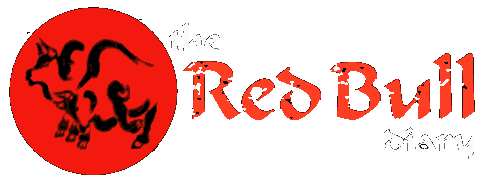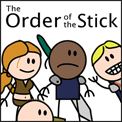Lord of the Rings: The Confrontation
I have been looking for a two-player strategy game and read favorable reviews of Lord of the Rings: The Confrontation, so I decided to pick up a copy. The game is by Reiner Knizia, perhaps the most famous game designer of the German school of board games that emphasizes simple mechanics and strategic gameplay. Knizia has been criticized in the past for his games lacking flavor, but this game is sure to silence his critics. Not only does LOTR:TC have a nearly perfect mix of strategy, luck, bluffing and resource management, but it also succeeds in capturing the feel of Tolkien's trilogy. This faithfulness to theme may be the game's undoing, but I will elaborate on that a bit later.
The board is laid out like a diamond, and at one corner is the Shire, the home base of the Fellowship, and the other is Mordor, the stronghold of Sauron. Each player gets nine characters and begins with four of them in his home base and the other five scattered on his side of the board. Figures are placed inside stands with one plain side so that one's opponent does not know the location and identity of the pieces on the board, like Stratego. The object for the Fellowship player is simple: get Frodo into Mordor so that he can destroy the One Ring. Sauron can win by either getting three of his minions into the Shire or by killing the Ringbearer before he reaches his goal.
Each character has a special ability that alters the rules. For example, Frodo may slip away if he is attacked, Boromir automatically defeats anyone he fights but is defeated himself in the process, the Flying Nazgul may move anywhere on the board, and Shelob returns home automatically after she gobbles Hobbits. These special abilities and their interactions are what make the game interesting, and a skilled player will base his strategy on figuring out how best to employ each character at each stage of the game. For the Fellowship player, understanding and utilizing each character correctly is the key to winning, because the dark forces of Sauron are at a distinct advantage in combat.
When combat is resolved, each player must play one of nine cards he holds in his hand. The Sauron character gets Strength Cards with values from 1 through 6, plus three special Text Cards. The Fellowship gets Strength 1 through 5 and four Text Cards. A large part of the strategy invovled in the game revolves around which card one chooses to play. You want to keep track of where characters go when they are revealed, and since you know what cards your opponent has played, you can try to outsmart your opponent by guessing which card he will use.
The guessing games that go on between the two players is what really makes this game shine. It's fun to try to figure out ways of setting up your characters strategically, thinking about all of the special abilities in play. What's more, in the deluxe edition, there are also two alternate forms of play, one of which consists of a drafting process. I'm a sucker for any board game that uses CCG mechasnics as effectively as this. I played this game for the first time as Sauron and lost because I didn't understand how to play the game. The key rule to remember in this game is that your pieces only move forward. The dark side has several mobile pieces and so you might be tempted to bum-rush the significantly weaker Fellowship player. I was out of position and Frodo slipped into Mordor. One molten ring.
But I wanted to play again.
And so did my girlfriend, which is always good. I won the second game, but here was where I got worried. It just doesn't seem fair. It really does seem like the odds are stacked against the Fellowship. Let me explain what I mean.
Each character is given a strength rating which indicates its effectiveness in battle:
| Fellowship Character | Strength | Sauron Character | Strength | |
|---|---|---|---|---|
| Gandalf | 5 | Cave Troll | 9 | |
| Aragorn | 4 | Witch King | 5 | |
| Legolas | 3 | Balrog | 5 | |
| Gimli | 3 | Shelob | 5 | |
| Merry | 2 | Saruman | 4 | |
| Sam | 2 | Black Rider | 3 | |
| Pippin | 1 | Flying Nazgul | 3 | |
| Frodo | 1 | Warg | 2 | |
| Boromir | 0* | Orcs | 2 |
I guess the reason this seems troubling is that while I trust Dr. Knizia to make a balanced game, the rulebook does say,
We recommend that you play two games. Each player should play the Fellowship player once and the Sauron player once. The winner of each of these games receives one point for each of his characters that remain on the board at the end of the game (the loser receives no points). After two games, the player who has the highest total number of points is the overall winner.This feels a little like a skewed game if he's going all meta-game here, though I suppose it does artificially balance what seems like an unbalanced game. I want to try playing a few more times as the Fellowship before passing judgment, but it does seem like it at least takes a lot more clever play on the part of the Fellowship player.
Overall, it's a good game. Fun, fast, and well-designed, a joy to look at. Try it. You'll like it.

 RSS
RSS


;)